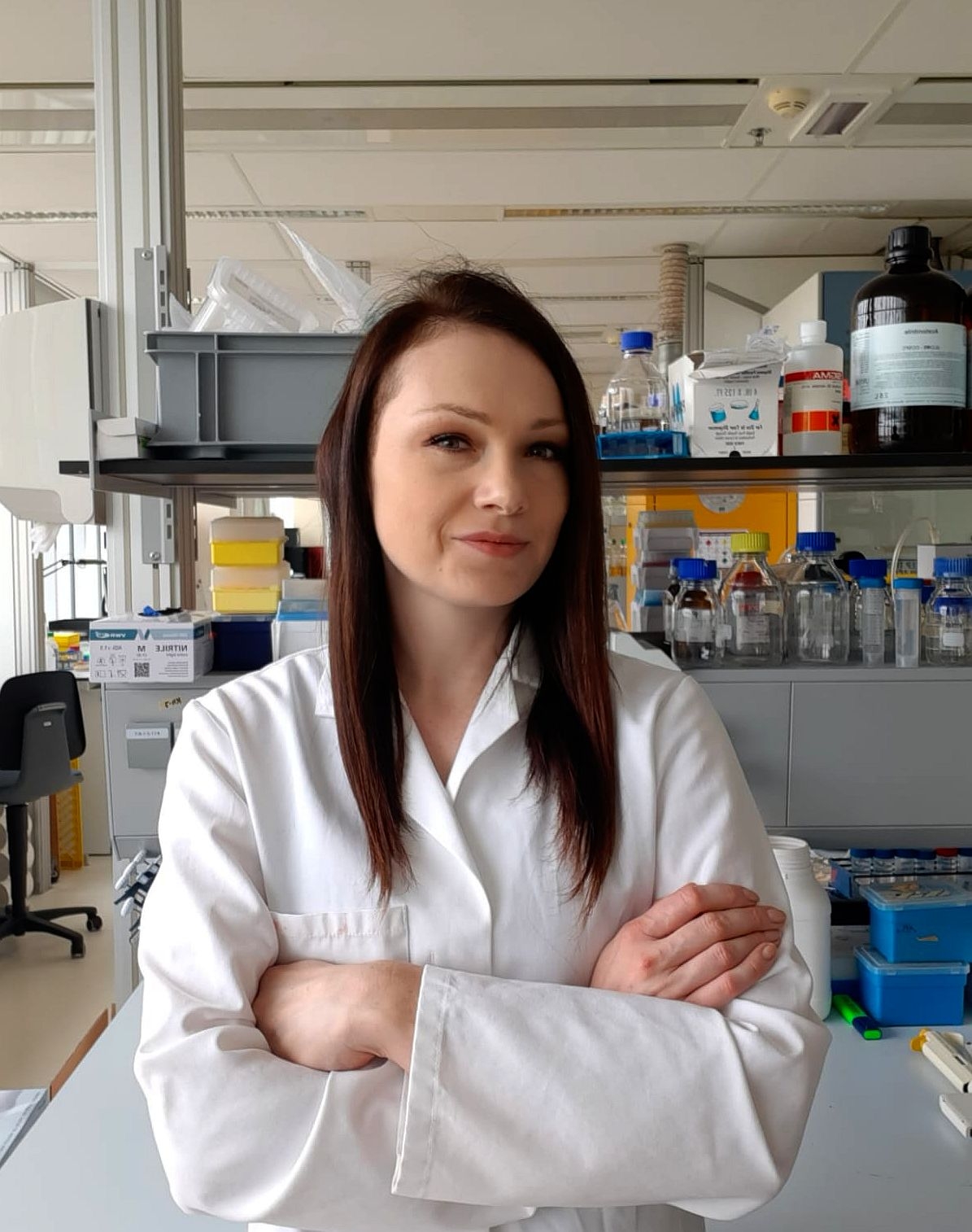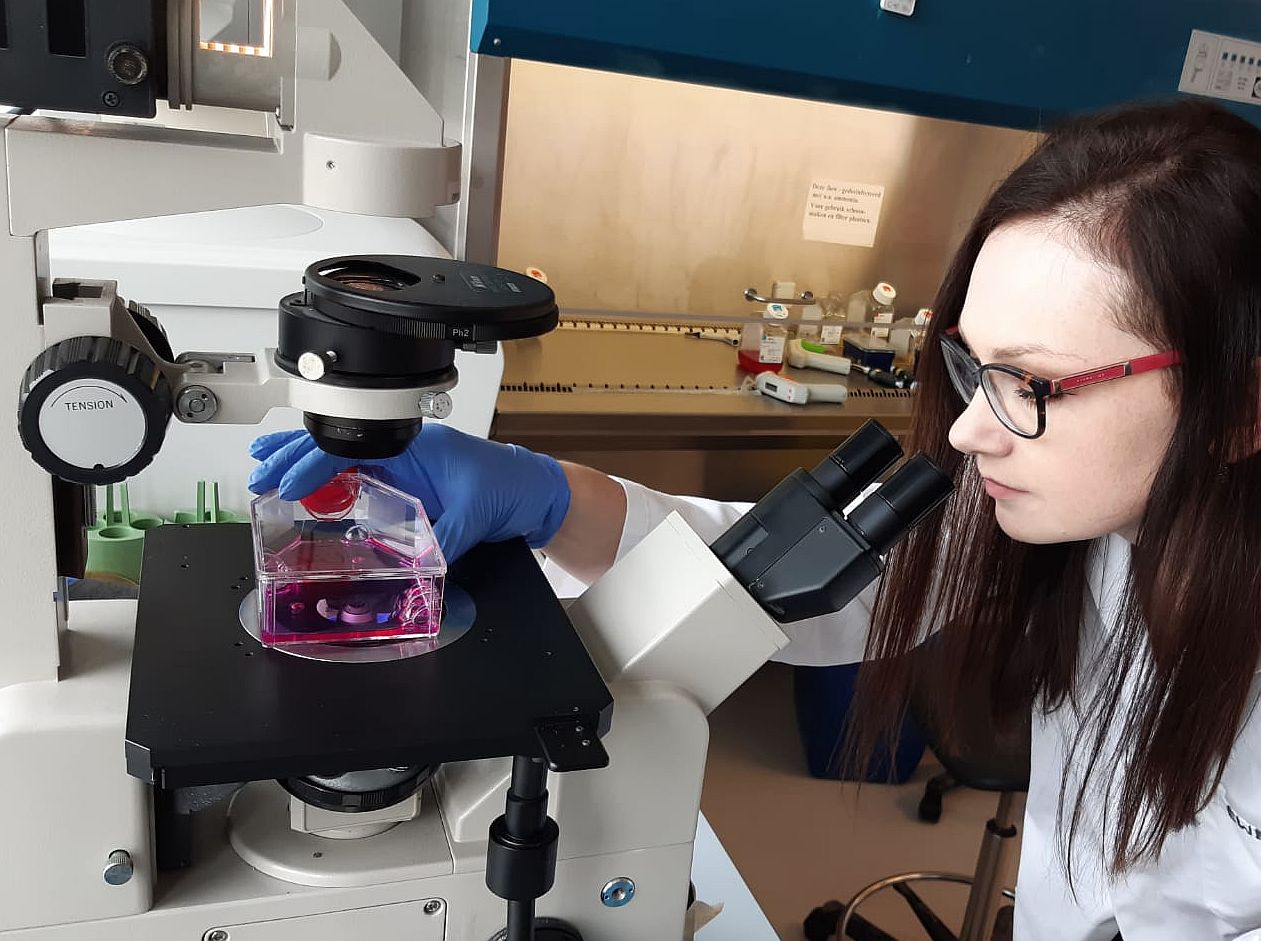YOUR BROWSER IS OUT-OF-DATE.
We have detected that you are using an outdated browser. Our service may not work properly for you. We recommend upgrading or switching to another browser.
Date: 09.06.2020 Category: science/research/innovation
Ewelina Węglarz-Tomczak, PhD from the Faculty of Chemistry is conducting research that may help develop a medicine for COVID-19. Together with her team, she has identified an organic compound that inhibits the activity of an enzyme which is essential to the development of the virus.
 – When the pandemic broke out, I started to wonder what enzymes are most important for CoV2, i.e., without which ones the virus can’t multiply – explains Ewelina Węglarz-Tomczak, PhD, who is currently on her postdoctoral placement at Universiteit van Amsterdam in the Netherlands.
– When the pandemic broke out, I started to wonder what enzymes are most important for CoV2, i.e., without which ones the virus can’t multiply – explains Ewelina Węglarz-Tomczak, PhD, who is currently on her postdoctoral placement at Universiteit van Amsterdam in the Netherlands.
– The analysis led us to the enzyme PLpro, whose action is crucial to the progression of the COVID-19 disease. PLpro is not only required to multiply the virus, but it also plays a role in cheating the host’s immune system – she adds. Further preliminary research resulted in the researcher’s idea that selenoorganic compounds should effectively inhibit the enzyme. Ebselen is a well-known medical compound, whose low toxicity has already been demonstrated.
Jakub Tomczak, PhD, a WUST graduate and former employee who currently works at Vrije Universiteit in Amsterdam as Assistant Professor, Michał Talma from WUST’s Department of Bioorganic Chemistry, and Professor Stanley Brul from Universiteit van Amsterdam are involved in the study.
– Our research can be used to develop a medicine – believes Ewelina Ewelina Węglarz-Tomczak, PhD. – We have identified ebselen as a highly active papain-like protease inhibitor (PLpro) from SARS-CoV-2. It is an organic compound containing selenium. Ebselen is characterised by very low toxicity to healthy cells, so there are virtually no barriers to its use in humans. The vision of using it for the development of the medicine is therefore very real – believes the researcher from Wrocław University of Science and Technology.
The researchers made the results of their research available on the bioRxiv preprint platform (Ebselen as a highly active inhibitor of PLProCoV2), not ruling out further research aimed at introducing the medicine into circulation.
 Ewelina Węglarz-Tomczak, PhD is now residing in the Netherlands under the Mobility Plus programme financed by the Ministry of Science and Higher Education. At Wrocław University of Science and Technology, she is a member of the group headed by Professor Lukasz Berlicki at the Department of Bioorganic Chemistry.
Ewelina Węglarz-Tomczak, PhD is now residing in the Netherlands under the Mobility Plus programme financed by the Ministry of Science and Higher Education. At Wrocław University of Science and Technology, she is a member of the group headed by Professor Lukasz Berlicki at the Department of Bioorganic Chemistry.
Her research focuses on the issue of cancer cell metabolism. Currently, she is conducting an interdisciplinary project aiming to explain, among other things, the influence of the availability of nutrients on cancer cells’ growth rate and behaviour, as well as the identification of molecular targets.
– I’m also ceaselessly interested in proteolytic enzymes, as this is the subject of my doctorate. Their activity is correlated with the development of various diseases. As it turned out, also in the case of PLpro and COVID-19 – says Ewelina Węglarz-Tomczak, PhD.
Our site uses cookies. By continuing to browse the site you agree to our use of cookies in accordance with current browser settings. You can change at any time.